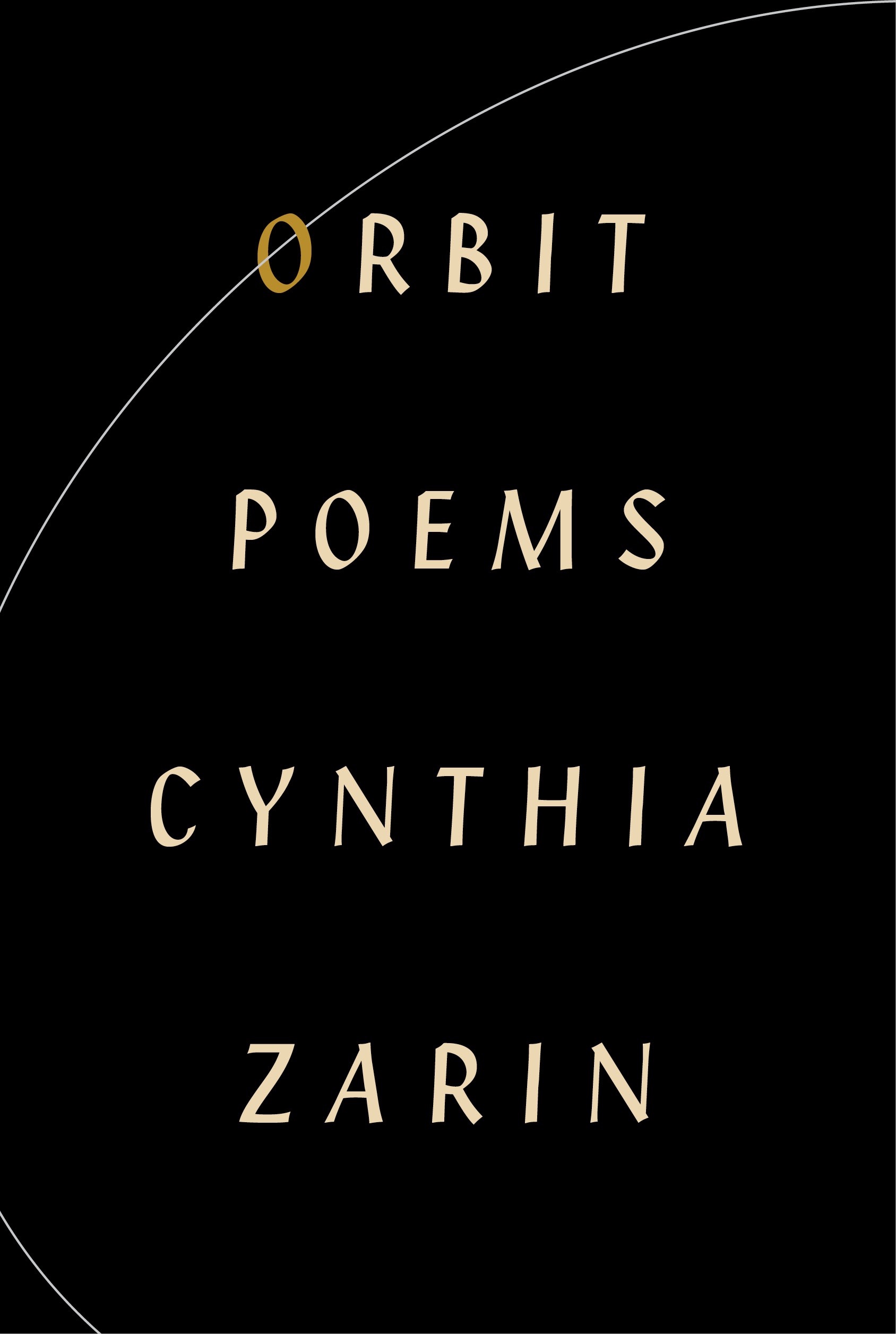Orbit: Poems
by Cynthia Zarin
reviewed by Carly Rubin
Cynthia Zarin’s latest collection of poems, Orbit, places readers into the middle of an ongoing conversation, intimate and challenging, that begins long before we are invited to enter and continues long after we must go. The book begins with a poem called “Flowers”:
It seemed especially important
not to spill the coffee as I usually
do, as I turned up the stairs,
inside the whorl of the house as if
I were walking up inside the lilies.
I do not know how to hold allthe beauty and sorrow of my life.
There is an awareness of familiarity and habit introduced even earlier in the poem, when the speaker remarks that, “of course you had no way of knowing / it has been years since I bought / white flowers—but now you have / and here they are again.” This awareness is coupled with a desire to move beyond easy traversals of routine, and this tension creates a compelling unfamiliarity in familiar things—like the lilies, which become a signal of a complicated entanglement of departure and return. Zarin reveals the complexity of such negotiations in both her content and her form: turns and whorls conflate house and flower, and when the poem ends, the stanza break Zarin inserts between her last two lines creates an active, spatial absence into which the “beauty and sorrow” creeps, allowing readers to imagine the impossible difficulty of holding onto something that refuses to remain comfortably contained within the poetic line.
As the collection’s title suggests, Orbit deals, essentially, in movement: how bodies move in and out of the world, and how the world moves in and out of bodies. What kind of pull, Zarin asks in her poems, do we create by our movements? What kind of trajectory? Two of the poems in this text—“The Impulse Wants Company” and “Dear and Blackbirds”—were commissioned by BalletCollective, an organization based in New York City, which then performed ballets based on these pieces. Such attention to physicality and choreography shows in the careful technical construction of Zarin’s lines as well as in the way the figures of these pieces move throughout their landscapes. In her title poem, “Orbit,” Zarin writes:
How can I swim up so many stories?
On the landing, furs. Gloves. A walking stick,
Grandfather in his overcoat, clearing
his throat, the winter smell of carnations.
I tried to write it down but lost. Missed tread.
Footfall of what the dead said. Don’t, or do?
All ear, I have no hands. Lunatic hero,
the hermit crab who keeps me company
turns me over, nebulae, on my back.
Here, as elsewhere in Zarin’s work, the movement is palpable, and everyday things—gloves, furs, a walking stick, the sound of a throat clearing—transform into stirred and shifting figures themselves, pulled by gravity into the speaker’s curved and coursing path.
The impact of Zarin’s first-person voice is strengthened by her frequent references to other figures, who often linger just outside the poem’s frame. Sometimes Zarin tells us who she’s speaking to—as in the closing prayer of the poem “Sunday,” which pleads, even as the speaker shares her dreams with us, “Dear God, let me / keep my dreams to myself and do no harm”—but often Zarin’s poems reference an unidentified “you” whose presence is all the more powerful for their lack of fixed identity. This blurs the line between speaker and listener: these are the intimate experiences and interactions of a singular voice whose world we can never know entirely, but we’ve been asked to come inside and stay awhile, caught in Zarin’s orbit and compelled to become intimately engaged.
The poems of Orbit reach out and hold us in their grasp—they wind and turn, spin and stir through enjambed lines and portioned-off sections, carrying us along with them as we move through each lyric and rhythm. Space and time work a bit differently in each of the pieces in this collection, and the result, ultimately, is a world of little worlds, flowing into and out of each other and asking us to do the same. Orbit invites us to lean in close and feel our way through these negotiations. Pay attention, Zarin suggests in “Orbit,” to “Mnemosyne’s / daughters, sun-sprockets, whirring to make you listen.”
Published on August 1, 2017

